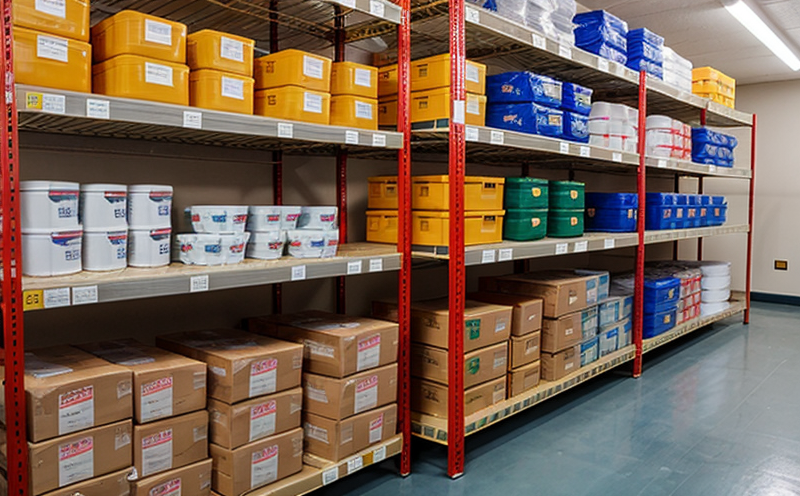Freeze Thaw Stability Testing
In the pharmaceutical industry, ensuring the stability and shelf-life of drug products is paramount. Freeze-thaw cycling represents a critical test to evaluate how well a drug product withstands repeated freezing and thawing cycles. This can be particularly important for injectables, biologics, and vaccines that may undergo such conditions during manufacturing, storage, or transportation.
The freeze-thaw process simulates the real-world environmental stresses faced by pharmaceutical products. Such testing is especially relevant in ensuring product integrity after distribution to various climates, from cold warehouses to hot transport vehicles. Freeze-thaw stability tests are conducted according to international standards like ISO 17852 and ASTM E1655, which provide detailed protocols for the procedure.
The process involves exposing samples of a drug substance or formulation to controlled cycles of freezing and thawing, typically at specified temperatures (e.g., -40°C to +30°C). The duration and number of cycles can vary based on product requirements. Post-test analysis includes assessing physical properties like viscosity, particle size distribution, and visual inspection for changes in appearance.
Freeze-thaw testing is a critical component of quality assurance programs in the pharmaceutical sector. It ensures that drug products maintain their efficacy and safety throughout intended storage conditions, thereby upholding patient trust and regulatory compliance.
- Critical Parameters: Temperature range, cycle duration, number of cycles
- Instrumentation: Cryostat chambers for precise temperature control
- Data Collection: Visual inspection, rheological measurements, particle size analysis
Industry Applications
The freeze-thaw stability test is a cornerstone of pharmaceutical R&D and quality assurance. It helps in determining the optimal storage conditions for various drug products by identifying temperature ranges that may lead to degradation or loss of efficacy.
For injectables, biologics, and vaccines, this testing ensures that products can withstand the rigors of transportation from manufacturing facilities to healthcare providers under challenging conditions. This is particularly vital in ensuring that these life-saving drugs remain effective and safe for patients worldwide.
The test also aids in the development of new formulations by providing insights into how different excipients or process parameters affect product stability. By understanding these impacts, pharmaceutical companies can refine their manufacturing processes to enhance product quality and shelf-life.
Furthermore, freeze-thaw testing plays a crucial role in compliance with regulatory requirements set forth by agencies such as the FDA and EMA. Compliance officers rely on this data to ensure that products meet stringent safety and efficacy standards, thereby protecting public health.
Customer Impact and Satisfaction
Conducting thorough freeze-thaw stability tests significantly enhances customer satisfaction by ensuring product integrity and efficacy. By demonstrating robust performance under simulated real-world conditions, pharmaceutical companies can build trust with healthcare providers and patients alike.
Compliance officers appreciate the detailed insights this testing provides into potential risks associated with storage and transportation, allowing them to implement strategies that mitigate these risks effectively. R&D engineers gain valuable data on how different formulations behave under stress, which they can use to improve future product designs.
For procurement teams, freeze-thaw stability testing ensures that the materials and containers used for drug products are capable of withstanding the rigors of distribution networks. This not only enhances product quality but also reduces the likelihood of recalls or batch failures due to environmental factors.
Competitive Advantage and Market Impact
In a highly competitive market, ensuring consistent product quality is key to maintaining customer trust and loyalty. Freeze-thaw stability testing provides a clear advantage by demonstrating that products can maintain their integrity under challenging conditions. This can lead to enhanced market reputation and increased sales.
By being able to offer products with proven freeze-thaw stability, pharmaceutical companies position themselves as leaders in quality assurance. This not only attracts more customers but also helps establish long-term relationships with healthcare providers who prioritize product reliability.
The data obtained from these tests can inform continuous improvement efforts within the company, leading to safer and more effective drugs that meet or exceed regulatory standards. Such commitment to excellence sets companies apart in a crowded market, fostering customer satisfaction and loyalty.





